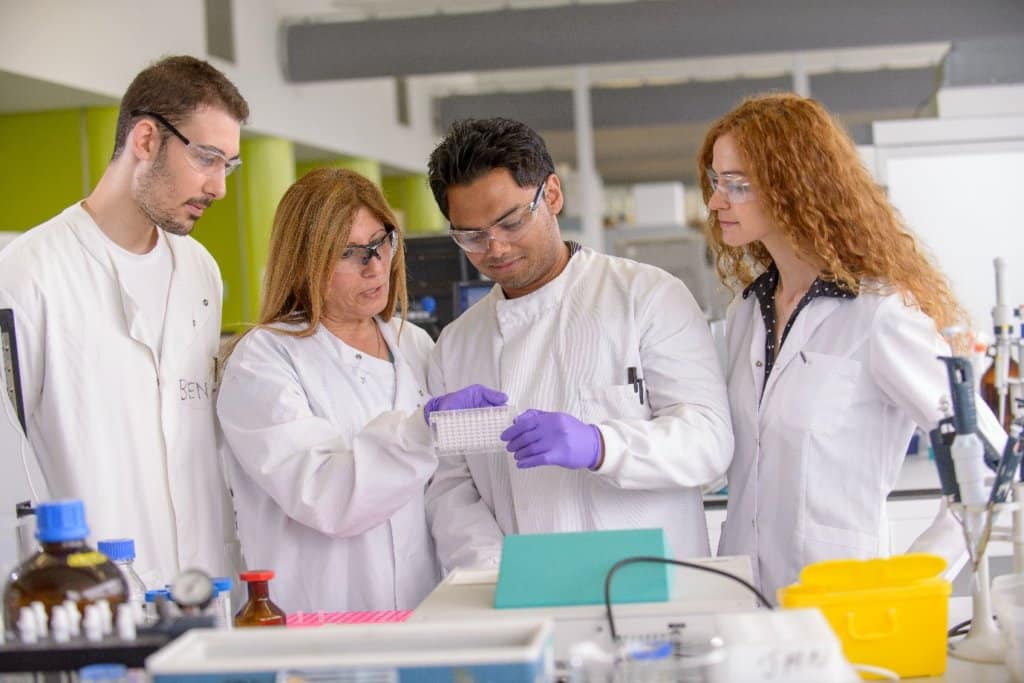A more sustainable future is vital for the planet. As part of the 2030 Agenda for Sustainable Development, the United Nations has set forth 17 Sustainable Development Goals, including clean water, affordable energy and climate action. It’s the most ambitious global plan of action for people, planet and prosperity to date.
To achieve these goals, look no further than Cranfield University. Its School of Water, Energy and Environment is on a mission to educate a new generation of leading scientists, engineers and managers capable of creating a more equitable and sustainable future.
“Signing the SDG Accord makes clear Cranfield’s ongoing focus on bringing academic expertise, industry insight and new technological developments to government, business and wider society,” shares Vice-Chancellor Professor Karen Holford CBE FREng.
Cranfield’s expertise and dedication in delivering a more sustainable planet is at the heart of all teaching and research, find out more at Sustainability at Cranfield. It’s the ideal university for students seeking the knowledge and skills to imagine and deliver a sustainable green planet. Here’s why:
A world-class reputation
Accolades speak volumes. Cranfield has been ranked 27th in the world and 5th in the UK for the subject area of “Engineering – Mechanical, Aeronautical and Manufacturing,” according to the QS World University Rankings by Subject 2022. The Research Excellence Framework classes 88% of Cranfield’s research as world-leading or internationally excellent.
Cranfield is also one of only six institutions to have won the Queen’s Anniversary Prize for Further and Higher Education six times. In 2017, they were ranked among the top 10 universities for research income per academic in the UK.
Diverse programmes to tackle sustainability challenges in the 21st century
Cranfield offers courses that emphasise specialised knowledge unique to each discipline. Each is paired with an emphasis on practical learning and personal development to ensure every learner is prepared to add value in the global marketplace.
Its postgraduate offerings include MSc courses in Advanced Chemical Engineering, Advanced Digital Energy Systems, Advanced Water Management, Future Food Sustainability, Environmental Engineering, Renewable Energy, Water and Sanitation for Development and Water and Wastewater Engineering.
Students can opt for full-time or part-time study, or from a range of short courses. Their taught programmes can deliver an MSc, MDes, PgDip or PgCert.

Cranfield University has a staff-to-student ratio of 8:1, providing students with a dedicated hands-on, practical learning experience. Source: Cranfield University
Experiential learning at its finest
When it comes to applying knowledge, opportunities abound at Cranfield. An 8:1 staff-to-student ratio provides students with a dedicated hands-on, practical learning experience. Many of the teaching staff have industry backgrounds and are leading academic experts in their field – an excellent opportunity for students to learn about the real-life challenges they will encounter in their careers.
That’s not all. Students from more than 100 countries bring a diverse blend of perspectives that not only enhances the discussion in the classroom but takes it global.
“The course and experiences have been amazing because of the international exposure and interaction between a diverse group of people from around the world,” say married couple, Sachin and Smaranika. “The group project has been one of the best experiences at Cranfield University. Our group was made up of people from different nationalities and Sachin and I were working in the same group. We had a great time! We all had a unique skill set which helped us to collaborate, guide and motivate one another towards the successful completion of our amazing project on ‘Modelling of components in supercritical CO2 power cycle.’ Our tutor supported us immensely and conducted regular meetings for review. We learnt a lot and gained many technical skills that will be essential in our future careers.”
Close links with businesses, industries and governments
Thanks to close ties with industry partners like Unilever, McDonald’s, BP and Siemens, our graduates are equipped with the knowledge and skills to tackle the latest challenges facing both public and private sector organisations around the world.
Cranfield University Technology Park, adjacent to the university campus, also houses 50 companies ranging from start-ups to small and medium-sized enterprises.
“Cranfield has very strong and long-term relationships working with and for industry,” says Professor Jane Rickson. “Our contacts regularly approach us to solve their particular challenges. At the same time, we are always developing and expanding our network of new contacts, who we hope will provide opportunities for student projects. These student projects are often a good way of undertaking a ‘proof of concept’ project, and if successful, this might be followed up by a larger research contract, maybe even a PhD for the MSc student involved.”
Where world-changing discoveries are made
Built on a former Royal Air Force base, Cranfield is one of only a few universities in the world to own and run its airport – maintaining an aerospace heritage stretching back more than 70 years.
As such, many of the facilities are of industry standards, used by other universities and serve as front-line resources for the UK. They include the wave tank, plant growth facility, environmental analytical facility, water treatment facility and the new HyPER facility.
One of the outstanding facilities that complement the SDG goals is the Cranfield Water Science Institute. As one of the UK’s largest academic groups specialising in process technologies, engineering and policy for water quality improvement, it is recognised internationally as a centre of excellence for postgraduate courses.
Find out how you can be part of the University’s global sustainability efforts by studying on one of our specialist courses:
Follow Cranfield University on Facebook, Twitter, Youtube and Instagram.











